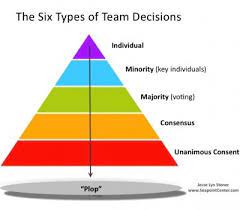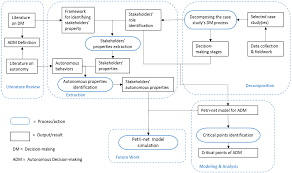The Impact of Depression on Decision Making
Depression is a serious mental health condition that can have a profound impact on various aspects of a person’s life, including their ability to make decisions. Individuals struggling with depression often experience cognitive impairments that can affect their decision-making process.
One common effect of depression on decision making is difficulty in focusing and concentrating. Depressed individuals may find it challenging to process information effectively, leading to indecisiveness and hesitation when faced with choices.
Moreover, depression can also lead to negative thinking patterns that influence decision making. Individuals with depression may have a tendency to focus on worst-case scenarios or perceive situations more negatively than they actually are, which can hinder their ability to make rational decisions.
Another way in which depression impacts decision making is through emotional regulation. Depressed individuals may struggle with regulating their emotions, leading to impulsive or irrational decision-making behaviors driven by intense emotions such as sadness or hopelessness.
It is essential for individuals experiencing depression to seek professional help and support in managing their condition. Therapy, medication, and other treatment options can help alleviate symptoms of depression and improve cognitive functioning, ultimately enhancing one’s ability to make sound decisions.
By addressing the effects of depression on decision making and seeking appropriate treatment, individuals can regain control over their lives and navigate through challenges with greater clarity and confidence.
6 Tips for Navigating Decision-Making While Managing Depression
- 1. Take small steps when making decisions to avoid feeling overwhelmed.
- 2. Seek support from friends, family, or a therapist to discuss your thoughts and feelings.
- 3. Practice self-care activities such as exercise, meditation, or hobbies to improve your mood and clarity of thought.
- 4. Challenge negative thoughts by identifying cognitive distortions and replacing them with more balanced perspectives.
- 5. Set realistic goals for yourself and celebrate small achievements along the way.
- 6. Remember that it’s okay to seek professional help if you’re struggling with decision-making due to depression.
1. Take small steps when making decisions to avoid feeling overwhelmed.
When dealing with depression and decision making, it can be beneficial to take small steps to prevent feeling overwhelmed. Breaking down choices into manageable tasks can help reduce the burden of decision making and make the process more approachable. By focusing on one step at a time, individuals can navigate through decisions with greater ease and clarity, ultimately leading to more effective and less stressful outcomes.
2. Seek support from friends, family, or a therapist to discuss your thoughts and feelings.
Seeking support from friends, family, or a therapist to discuss your thoughts and feelings can be a crucial step in managing depression and improving decision-making. Opening up to trusted individuals or a professional can provide valuable insights, emotional support, and guidance in navigating the challenges associated with depression. By sharing your concerns and experiences with others, you can gain perspective, receive encouragement, and explore effective coping strategies that can positively impact your mental well-being and decision-making process.
3. Practice self-care activities such as exercise, meditation, or hobbies to improve your mood and clarity of thought.
Engaging in self-care activities such as exercise, meditation, or hobbies can significantly benefit individuals struggling with depression and decision making. These activities not only help improve mood and reduce stress levels but also enhance clarity of thought. Exercise releases endorphins that boost mood and energy levels, while meditation promotes relaxation and mindfulness, helping individuals focus and make decisions more effectively. Additionally, participating in hobbies that bring joy and fulfillment can provide a much-needed mental break and rejuvenate the mind, allowing for clearer thinking and better decision making. Prioritizing self-care activities is a valuable strategy for managing depression and optimizing decision-making skills.
4. Challenge negative thoughts by identifying cognitive distortions and replacing them with more balanced perspectives.
One effective tip for managing depression and improving decision making is to challenge negative thoughts by identifying cognitive distortions and replacing them with more balanced perspectives. By recognizing and addressing distorted thinking patterns such as catastrophizing or black-and-white thinking, individuals can gain a clearer understanding of situations and make more rational decisions. By consciously replacing negative thoughts with more balanced and realistic perspectives, individuals can reduce the impact of depression on their decision-making process and cultivate a healthier mindset overall.
5. Set realistic goals for yourself and celebrate small achievements along the way.
Setting realistic goals for yourself and celebrating small achievements along the way can be a valuable tip for managing depression and improving decision making. By breaking down larger goals into smaller, manageable tasks, individuals can feel a sense of accomplishment with each step forward. Celebrating these small achievements not only boosts self-esteem but also provides motivation to continue progressing towards larger goals. This approach can help individuals with depression build confidence in their decision-making abilities and maintain a positive outlook on their journey towards better mental health.
6. Remember that it’s okay to seek professional help if you’re struggling with decision-making due to depression.
Remember that it’s okay to seek professional help if you’re struggling with decision-making due to depression. Seeking support from a mental health professional can provide you with valuable guidance and strategies to navigate through the challenges of decision making while managing your depression. Professional help can offer you the necessary tools and resources to improve your cognitive functioning, emotional regulation, and overall well-being, empowering you to make informed and confident decisions despite the obstacles posed by depression.




